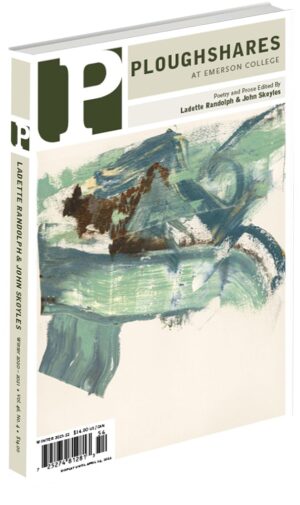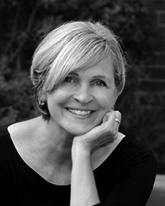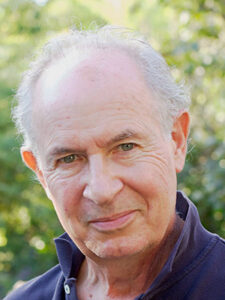Accidents (Emerging Writer’s Contest Winner: POETRY)
In poetry, our winner is Margaret Wright, for her poem “Accidents.”
Of the poem, poetry judge Paige Lewis says, “Is it possible for a poem to be a ghost? From the description of liminal spaces (the stopped train, the empty roller rink) to the uncertainty of the ‘accident,’ to the poem’s desire for us to both look and look away at the same time, it’s hard to imagine this poem as anything but haunting. After I first read this poem, I tried to go about my day, but the words kept coming back to me, tugging on my shirt’s hem. This is a poem that I’ll remember for the rest of my life.”
When did you first realize you wanted to be a writer? When did you first call yourself a writer?
I feel lucky to have grown up in a family of readers and writers—it didn’t take any huge leap of faith or imagination to declare myself a writer sometime around first grade. (It’s in the years since then that I’ve had my doubts.) I think when I was little, writing felt like an excuse to engage with the world in the way that came most naturally to me—I wasn’t very good at making friends, I was awful at sports, birthday parties scared me, etc.—but I did like to watch the world sort of speed by. I also had a lot of trouble differentiating what was real from what wasn’t, growing up—it all seemed so overwhelmingly strange. Stories and poems felt like an amazing loophole, where the relationship between what was imagined and what was true could be slightly messier.
Describe your writing process. What works for you as a writer? What do you find challenging, or even difficult, about writing?
It’s excruciatingly slow! It involves a lot of free-writing—both longhand and on the computer—and a lot of walking around the park near my house. Maybe this is just a symptom of being a younger writer, but I feel very little control over how or when a poem coalesces. It always seems impossible that I’ll produce anything at all until the very end, which is frustrating and a little exhilarating.
What kind of research do you do, and how long do you spend researching before writing?
I love that poems, for me at least, blur the distinction between research and non-research—they have a way of letting the outside world into them in these weird and unexpected ways. In this poem, my main piece of research was a prolonged WebMD spiral after a really bad headache. I came across the term referred pain and wrote it down in my journal. It wasn’t until days later that I realized the idea might fit into this poem, which I’d been trying to write for about a week. It’s one of my favorite things about writing poems—how they demand or reward a sort of heightened alertness or attention to everything you encounter in a day. When I’m not writing, I find it easy to slip away from this kind of curiosity.
Who are you reading now? What writers or works have most influenced your writing?
Right now I’m reading Jackie Wang’s The Sunflower Cast a Spell to Save Us From the Void, Diane Seuss’ frank: sonnets, and francine j. harris’ here is the sweet hand, all of which I’d recommend! I’ve also been reading a lot of Tracy Fuad, whose first book is about to come out, which I’m so excited for.
Most things I write are probably in some way traceable to To the Lighthouse by Virginia Woolf or Sula by Toni Morrison, both of which I’ve been reading and rereading for many years. Anne Carson and Marie Howe are two of the poets who first made me want to write poetry, and I’m sure both fundamentally shaped how I write. In high school I saw a production of The House of Blue Leaves by John Guare that I still think about pretty often.
What inspired “Accidents”? What works or writers would you say directly informed this poem?
The narrative of “Accidents” was inspired by a real train trip, but the poem also came out of questions that Catherine Barnett (whose workshop I was in at the time) had been bringing up in class about how much the speaker in a poem knows, and how that knowing might be disrupted. I was also, at that time, thinking a lot about the idea of misplaced protection—how often our impulses to protect those we love involve some sort of essential misunderstanding (or misunderstanding intertwined with understanding) and what happens when we let those protective impulses play out. I was reading Taylor Johnson’s Inheritance and Harryette Mullens Sleeping with the Dictionary, both of which have some really beautiful prose poems, which made me curious about the form. I’m sure the voices of my peers at [New York University], whose work I was reading every week, also found their way into the poem.
What’s the most valuable piece of writing advice you’ve received?
I think the classic advice to write and read as much as possible is hard to beat. In high school I read that W. S. Merwin liked to write poems on the backs of receipts, particularly when he was feeling nervous about the blank page. I don’t know if that’s true, but for some reason it struck a chord at the time—I’m not very good at macro-thinking (I’ve always been inclined toward the very small), so it seemed like really good news that receipt-writing could be ultimately fruitful. My own receipts tend to end up pretty crumpled, but for a while after reading that, I tried to carry around really small notebooks, which I do think helped me relate to writing in a new way—to appreciate the extent to which poems can emerge from fragments, and the space between fragments, as opposed to some master plan.
What risks do you take with your writing that have paid off?
Writing always feels like a risk to me—I find it very scary. But any time I’ve been pushed to make that risk a little greater, I’ve been grateful for what came of it. I wrote this poem for “anonymous submission week” in workshop, where we submitted poems without our names attached. The idea was, in part, to use the occasion to write something we might not expect of ourselves. Writing in the third person, writing a prose poem, and switching perspectives, were all things I’d been curious about but scared to try.
Do you have any advice for new or aspiring writers?
Not really! I need advice. In my workshop with Catherine, she had us write three pages every day—just small sketches or exercises or scraps of language we might return to later—and I’ve tried to continue since then. I think it helps to have a place to be playful and messy, where you aren’t constantly assessing how language will or won’t fit into any particular poem or project.
What projects are you working on now? Where is your writing headed?
I really don’t know! Right now I’m just writing.
*
When the train stopped on its way to Maryland and the loudspeaker announced there’d been an accident, the girl saw the deer clear in her mind, its long limbs crossed. Her older sister pressed her face to the dirty window, watching the marsh move under the steel legs of a telephone tower. An hour passed. The girl began reciting all the jokes she knew by heart. She pulled faces, mean and meaner at her sister. If the girl could make her look just as the train began to move, her sister might never know—might never see the bloody belly, dragged from the tracks to the mossy ditch. The marsh grass pulled and rustled. A small animal dislodged its body from the mud, walked into the rushes. By then the girl was singing, was shining, absurdly, in the direction of her sister, like smashed glass, or the disco ball that spun in the vacant roller rink where they’d had class field trips for years. Her sister cupped her hands, nails bitten down, around her eyes so as to see more clearly. There is a term, referred pain, for when the injury occurs in one place—often the tooth—and the ache appears elsewhere, as in the ear. When does she realize there was no deer? Or did I know then, tugging your shirt’s hem, saying, look here, look here, please look here.


